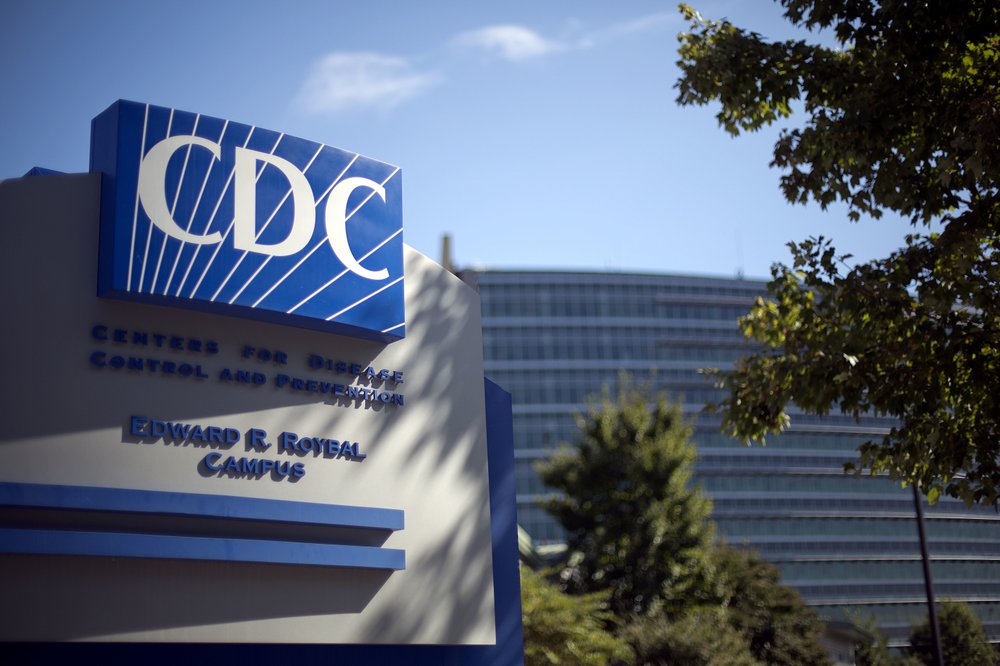Washington (People's Daily) – As the highly contagious Omicron coronavirus variant continues to spread across the US this holiday season, the rate of daily detected COVID-19 cases has eclipsed those fueled by the Delta variant over the summer. More than 69,000 Americans were hospitalized with COVID-19 on Christmas Eve. That's happening against the backdrop of a 48 percent increase in COVID-19 cases from last week, bringing the US average for new daily cases to 182,682, according to Johns Hopkins University.

A sign marks the entrance to the US Centers for Disease Control and Prevention in Atlanta, Georgia. (File photo: AP)
There are long lines at COVID-19 testing sites across the US. Some American experts complain about the lack of testing capacity in the country. Departing director of the National Institutes of Health Francis Collins warned that if Americans don't take COVID-19 seriously, the country could see one million daily infections.
As US faces this new wave of COVID-19 infection, many point a finger at the US Centers for Disease Control and Prevention (CDC). "We haven't invested in public health," says Robert Redfield, former director of the US CDC. Redfield pointed out the US CDC needs substantial changes to prepare for the future — including deploying more people around the US and the globe, modernizing its data operations and abandoning a slow-moving culture.
In an interview with Bloomberg, the former director of the CDC during the Trump presidency said the CDC has not invested in public health on a global scale. "We had offices and our people in over 60 different countries, but none of them had a comprehensive capacity," he said.
"I say this cautiously, but I say it intentionally: The coronavirus pandemic is the lesser pandemic; the great pandemic is coming. And you would think we would be awakened to the potential for a new pathogen to be highly disruptive for our nation," said Redfield.
Meanwhile, Redfield said that the CDC lacks real-time data. "It used to bother me when I was at the CDC, I was quite embarrassed that everybody quotes Johns Hopkins or Bloomberg. Why aren't they quoting the CDC? Well, because Johns Hopkins and Bloomberg's data was more up-to-date."
Redfield said, "We have really not invested in public health. We've never given the American public the public health system that it needs, more importantly that it deserves."
Other experts say the CDC's current plans do not solve underlying data issues that could spawn massive miscounts, and that it's important for vaccination coverage data to be accurate so that public health policies can be targeted where they are needed most.
"We need to know where our vulnerable populations are," says William Moss, the executive director of the International Vaccine Access Center at the Johns Hopkins Bloomberg School of Public Health. "We need to know where to divert resources. … With variations in data at the state level, it's just very hard to do all that at the federal level or at the national level."
"I think one place where the United States has really kind of failed is in having standards for state reporting so that we can readily compare numbers across states," Moss says.


